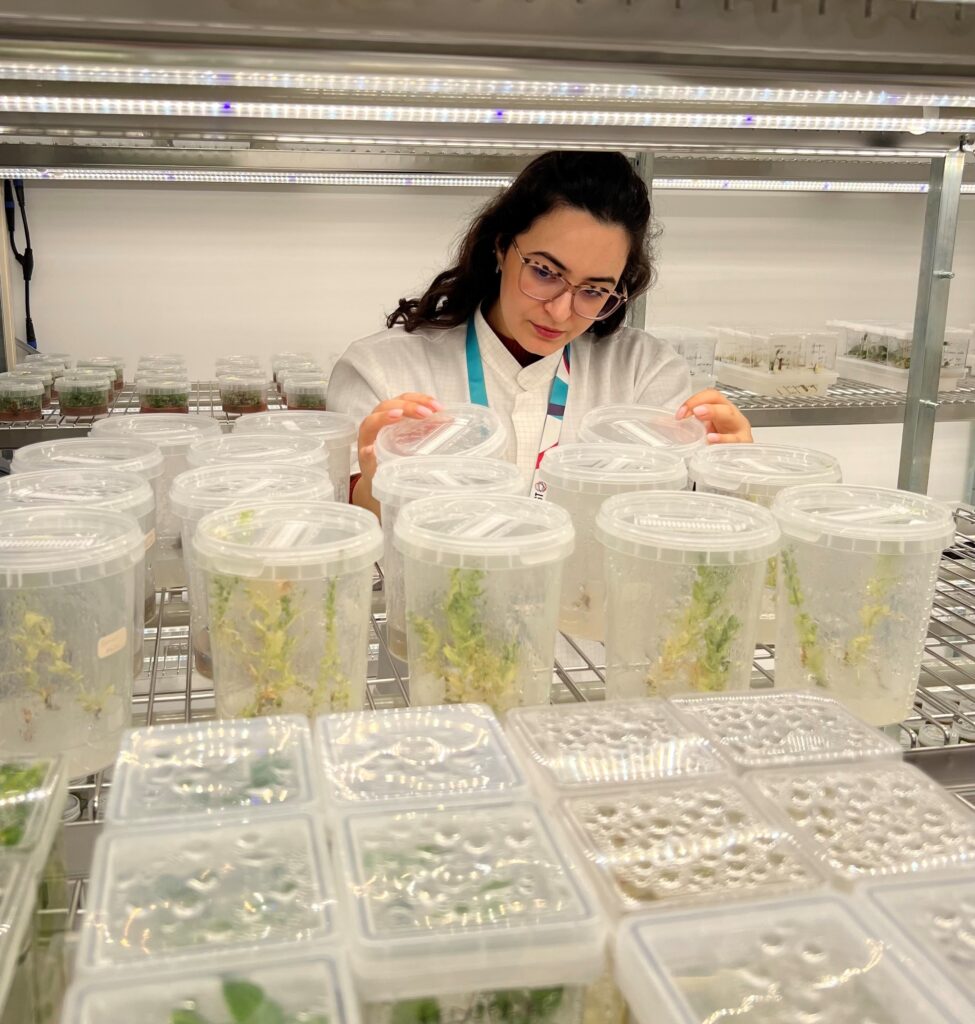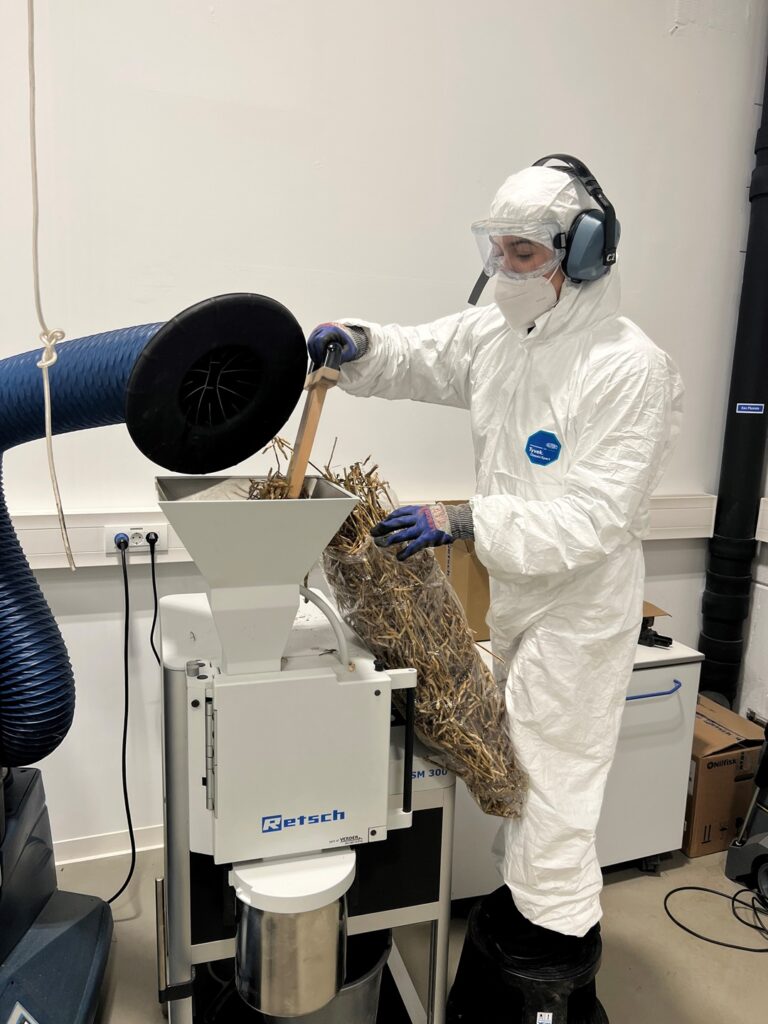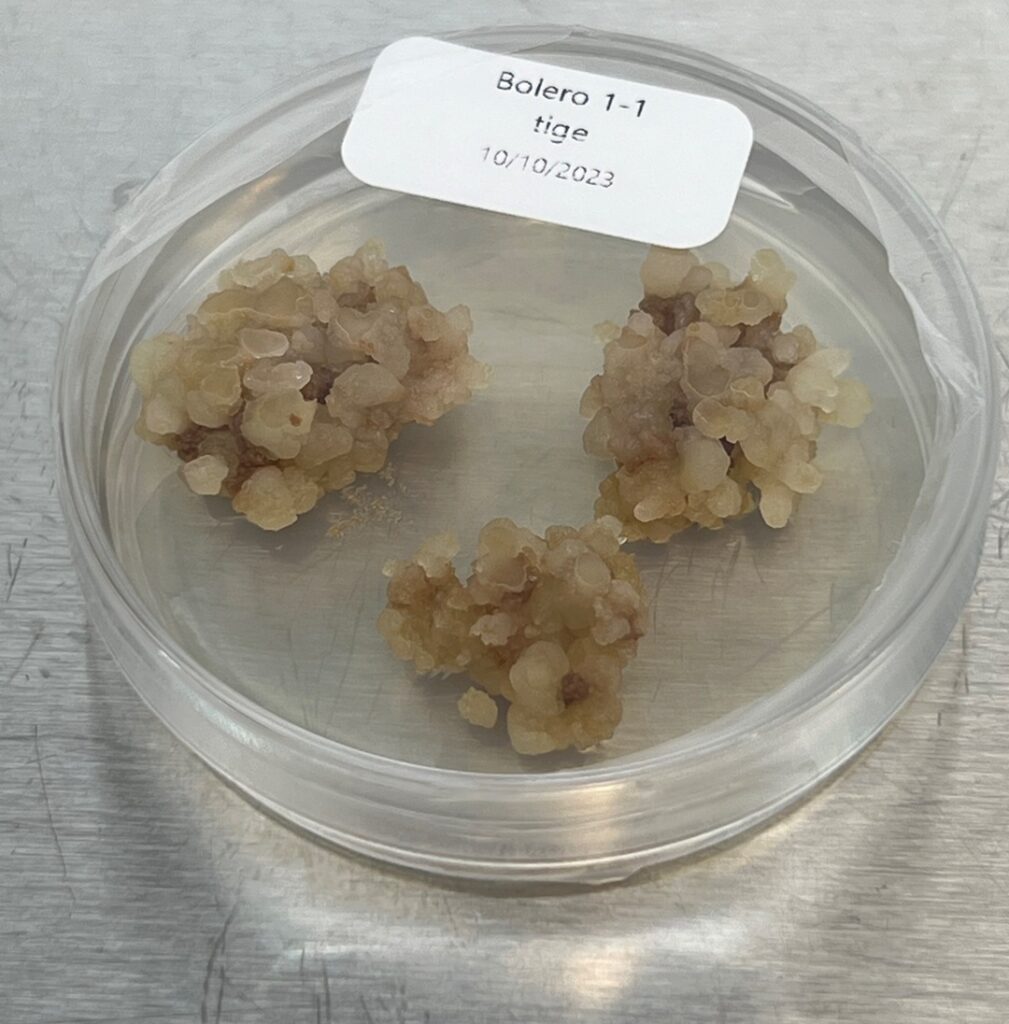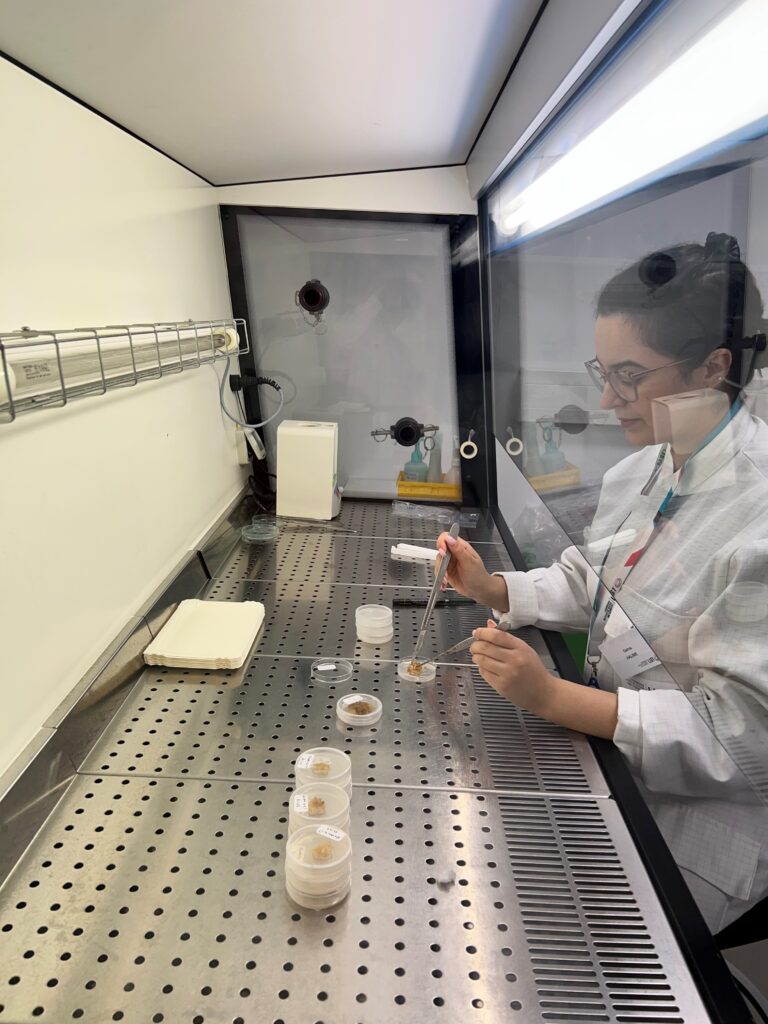BACK TO RESEARCH WITH IMPACT: FNR HIGHLIGHTS
With a growing world population comes an increasing demand for food, and subsequently pesticides. Chemical pesticides are effective, but have a negative impact on soil, water and human health, jeopardising the ecological balance. Despite growing regulation, resistance against stopping the use of these traditional pesticides remains. Researchers are working on biopesticides both safe and effective, including using agricultural residues as fungicides.

One of the biggest challenges agricultural systems face due to a surge in demand for food is controlling pests and crop diseases. Biopesticides show promise as an alternative to chemical pesticides: they can match the efficiency of chemical pesticides, increase crop yields, and meet environmental and societal preoccupations.
“Biocontrol research has played an essential role in reducing the harmful effects of traditional pesticides by providing eco-friendly alternatives,” explains Salma Halime is a biologist and PhD candidate at the Luxembourg Institute of Science & Technology (LIST)

Plants, bacteria and fungi promising candidates
As part of biocontrol research, scientists have been searching for new biomolecules derived from natural sources such as plants, bacteria, and fungi. The biomolecules are bio-degradable and so have less impact on the environment. Additionally, their activity is selective, meaning they do not harm beneficial insects and wildlife, only the targeted pest.
“This eco-conscious approach promotes sustainable agricultural practices that align with global initiatives for environmental preservation. By offering safer alternatives, biopesticide research helps to reduce chemical pollution in the soil and water bodies, contributing to healthier ecosystems. ”Salma Halime Biologist and PhD candidate at the Luxembourg Institute of Science & Technology (LIST)
Challenge in developing biopesticides both affordable and effective
The main challenge faced by scientists in the field of biocontrol is creating biopesticides that are affordable and as effective as chemical alternatives. This comes with regulatory obstacles, resistance from traditional practices, and the need to ensure consistent efficacy across a set of diverse conditions.

“My research aims to treat fungal infections in plants using biomolecules isolated from the bean family. The focus is on saponins from the harvest residues of bean plants grown for human or animal feed, such as pea, soybeans and faba beans. ”Salma Halime Biologist and PhD candidate at the Luxembourg Institute of Science & Technology (LIST)
Agricultural residue as a source of fungicides
There is evidence that using agricultural residues as a source of fungicides is an eco-friendly and cost-effective way to optimise biomass usage, while also promoting a circular economy.
“My project’s innovative approach is based on saponin-enriched extracts rather than isolated compounds. This increases the possibility of finding activities. In addition, using mixtures reduces the risk of resistance development. At the same time, synergies between the individual active ingredients can improve the efficiency and range of species against which a formulation can be used.”


Salma is currently researching the metabolomic profiles of seven species from the bean family, including soybean, faba bean, pea, chickpea, alfalfa, and blue and white lupin. These crops from the bean family are part of field performance trials conducted by IBLA (Institut fir Biologesch Landwirtschaft an Agrarökologie Luxemburg) at different farms in Luxembourg.
These species are very diverse, meaning various activities can be expected from the obtained extracts. At the same time, she is cultivating cell cultures of the seven species in vitro to study their metabolic profiles in bioreactors.
Overcoming biocontrol challenges is not an easy task, hindered by the complexity of pest-crop interactions as well as regulatory hurdles, combined with an entrenched reliance on chemical pesticides.
“To make progress, scientists and policymakers should work together to prioritise sustainable agricultural practices and facilitate the adoption of biocontrol solutions. It will require a concerted effort to achieve this goal. ”Salma Halime Biologist and PhD candidate at the Luxembourg Institute of Science & Technology (LIST)
Salma Halime is a biologist and PhD candidate at the Luxembourg Institute of Science & Technology (LIST), supervised by Kjell Sergeant in the research group of Jenny Renaut.
MORE ABOUT SALMA HALIME
Explaining her research in one sentence
“Developing biopesticides from saponin extracts isolated from bean plant residues to enhance and safeguard crop yields.”
What fuels her passion for science
“Exploring the secrets of the universe and contributing to advancements that benefit humanity fuels my passion for science. That’s why I decided to work on a project that combines metabolomics, biocontrol, and bioprocess engineering, as it presents a multidisciplinary approach to agricultural issues. Additionally, the institute LIST provides an environment that is suitable for both fundamental and applied science.”
What she loves about science
“Science has an incredible ability to reveal the unknown, allowing us to question, explore, and challenge existing boundaries. Its transformative power to expand our understanding of the world is impressive.”
Where she sees herself in 5 years
“In five years, I envision myself fully engaged in research.”
Related highlights
Spotlight on Young Researchers: Unravelling the role of calcium signalling to overcome melanoma drug resistance
Cutaneous melanoma is the most serious type of skin cancer and the sixth most frequent cancer in Europe. Despite progress…
Read more
Spotlight on Young Researchers: Advancing sustainable land use
Industry, agriculture and waste disposal all cause soil pollution, a threat to both ecosystems and human health. Environmental scientists and…
Read more
Spotlight on Young Researchers: Toward greener AI
Deep learning has seen an explosive growth and as it is now being relied upon in areas such as healthcare,…
Read more
Spotlight on Young Researchers: Combining machine learning & life events data to predict depression
A high number of people experience experiences depression in older age. Factors such as childhood conditions, adult life trajectories, and…
Read more
Spotlight on Young Researchers: Probiotics to the rescue
Billions of living microorganisms live in the human gut microbiome. Research has shown that an imbalanced microbiome plays a role…
Read more
Spotlight on Young Researchers: How multilingualism impacts learning numbers and mathematics
In an increasingly multicultural and multilingual society – especially in Luxembourg – it is key to ensure an educational system…
Read more